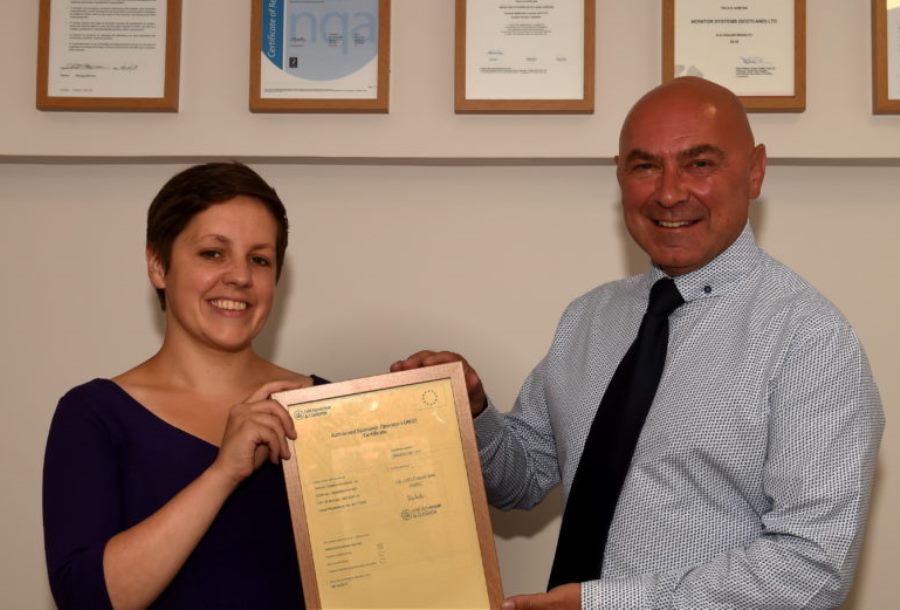
Aberdeen-headquartered energy service firm Monitor Systems didn’t invent the rainy day, but they feel like they’ve invested in the best umbrella.
With Brexit rolling in the company chose to put itself through an intensive audit to achieve Authorised Economic Operator (AEO) status this year.
The firm has also recently inked a lucrative £800,000 drilling data acquisition system contract in Azerbaijan and will be looking to use its newly won AEO status to grow even bigger.
As a firm which has weathered the storm of the oil downturn and come out holding coveted contracts in Mexico, Africa, India and most recently Azerbaijan, it decided gaining an AEO was the best means to Brexit-proof itself.
“Effectively you’ve been given a seal of approval” said Fergus Muat, Monitor Systems financial controller. “Less than 1% of all the companies trading have this.
“Looking through the companies like BP, Chevron and Ensco who have this accreditation, we think we are the first instrumentation and control company that’s got this.”
Managing director Brian Sinclair felt it was necessary to achieve AEO status to insulate Monitor Systems from Brexit.
He said: “We don’t know what’s happening with Brexit and it’s one of these live and current things at the moment.”
As a company that relies on imports and exports to, Monitor Systems wanted to ensure that a change in politics wasn’t going to affect profits and reputation.
Mr Muat said: “We looked at the potential impact of Brexit and what that would mean for goods coming into the country and felt that by getting AEO status that would mean our goods would flow through customs quicker and therefore would avoid any form of delays to our customer base, when we’re supplying offshore for safety critical and business critical products. We wanted our goods to be at the front of the queue.”
During the recent downturn in oil price the company had to quickly adapt to a new environment and take much of its business out of the North Sea.
Mr Sinclair and Mr Muat concede that their experience of the downturn may have affected their decision to proceed with cautious foresight to protect the company.
Mr Sinclair said: “Before the crash I think it’s fair to say that everything was excessive. Companies got big, fat and cumbersome. It got silly. I think it has forced us to become lean and mean and assess our situation.”
The company had to open itself up to the highest scrutiny by opening it’s books and practices to the Inland Revenue to achieve its accreditation, but it’s something both men are rightly proud of.
Mr Muat said: “Even our server had to be tested for intrusion testing. Someone described it to me as ‘all the drain covers come up’. But it was a good thing to go through as it lets you know that all your processes are robust and good.”
Mr Sinclair said: “The onus on us from the HMRC side is changing because they want us to be fully responsible. We’re technically importing parts from America, for instance, and we take them in here, but even though we’re selling to perhaps BP and they’re going onto a BP platform we still have full ownership of them until we can technically prove that we’ve handed them over and they’ve gone offshore.
“We’ve got to prove that the goods have gone to a rig or a ship and not somewhere else for some other reason to avoid duties or tax.”
Mr Sinclair added: “When the downturn hit we diversified. We went into renewables where we did the switch panels for the Beatrice wind farm. We took on a tank farm for Hoover Ferguson in February 2016. We do heli-deck monitoring, vessel management systems and even anti-piracy security systems. We’re not afraid of new contracts.”
Recommended for you
